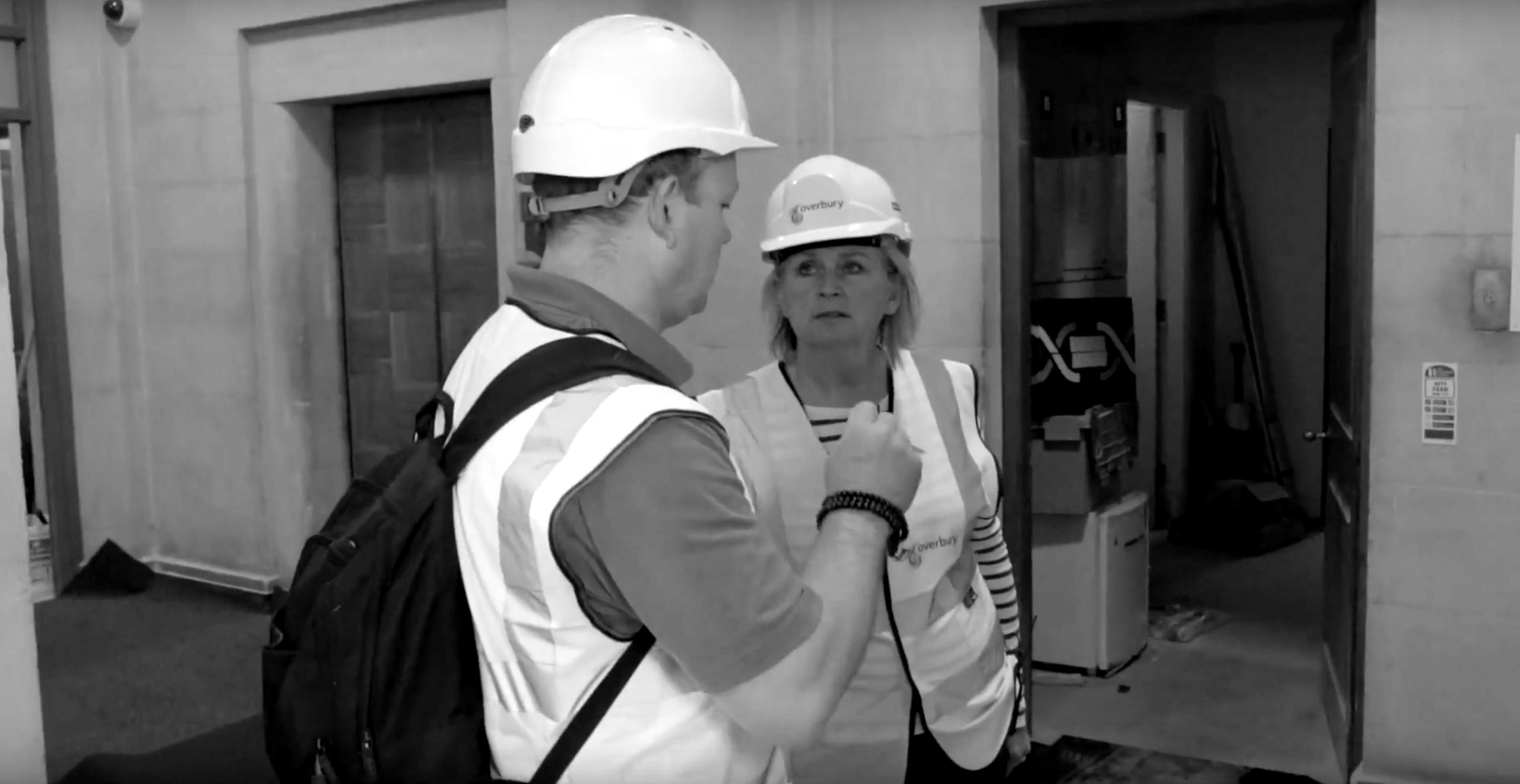— The PLACEmaking blog
5 things we need do in 2022 to help reshape the world of work
Author
Alison WhiteDate
January 4, 2022Our predictions for 2022 focus on asking five questions of our policy makers, investors, institutions, organisations and leadership bodies.
In preparation for drafting our predictions for 2022, we looked back at those we published ahead of the dawn of the new year in 2020.
As we are all well aware, within three months of publication the world was hit by the COVID-19 pandemic – a seismic shock that we are still all in the grip of. Our predictions then were as ever future-focused but also reflected the cultural attitude to change in many sectors – a reluctance to accept demands for flexibility in ways of working, almost an air of denial that conventional management approaches to presenteeism needed rethinking and a somewhat passive attitude to investment in workforce upskilling. It often felt like the right and left arms of organisations were out of sync – one hand busily invested in advanced technologies whilst the other hand locked staff inside outdated office buildings.
Our predictions for 2022 focus on asking five questions of our policy makers, investors, institutions, organisations and leadership bodies, asking them begin to implement the changes needed to embrace the simple fact that ‘going to work’ was changing pre-COVID but is now accelerated by the consequences of two years of enforced lockdowns. Our collective expectations of the future will not fit snugly back in to recycled solutions from the past.
This will require a step change by everyone including the digital and construction industries plus the multiple supply chains that have been reliant on the city centre office market. That dependency is now fractured and so we need to clearly articulate how the decentralisation of ‘going to work’ by volumes of commuters has shifted away from city centre districts and what replaces it.
We need to engage all sectors impacted by this change to collectively generate new opportunities. In cities this will mean smaller, more intensive micro HQ clusters, sharing associated event-hosting venues linked to an evolved landscape of flexible accommodation, leisure, continuous education, cultural learning, tourism, retail and entertainment venues. This will generate new opportunities for the essential infrastructure that enable cities to operate successfully.
01
We’ll stop building large office blocks
We’ll make better use of the buildings we already have. Our assumptions of what an ‘office’ is has changed so significantly that our pre-COVID assessment of buildings we would have regarded as not fit for purpose, torn down and rebuilt now needs a complete rethink. We’ll need to adapt much of our empty, larger scale office blocks to better meet our changing needs and businesses will own or lease less and share more. We’ll move towards a model of out-of-town distributed networks of shared office hubs, digitally connected to micro city-based HQs. We’ll start to reimagine how our cities respond to a new set of expectations so that they are attractive and better able to deliver the experiences we actually want in place of assuming we’ll all go back, either voluntarily or enforced to how it was pre-COVID.
Greater focus on staying local, family commitments, community well-being, personal and environmental health and a shift from fast wastefulness to ‘slow’ repair, reuse and recycle precious resources will create new opportunities and new challenges outside city centres including in our rural and coastal towns.

02

We’ll be liberated from unnecessary daily commuter journeys
In 2022 we will be commuting less often. When we do go to ‘the office’ it will be infrequent, pre-planned and for specific events. We will want to maximise the value of the travel effort and the experience from door-to-door and back again will be measured against the outcome value of the trip. The purpose of the trip will need to be compelling, well-planned and the focus will be on the collaborative, interactive activities that can only be achieved face-to-face. We’ll develop our remote working skills, increasing our acceptance of using interactive environments as collaboration tools.
That being said, working from home as the single alternative to commuting to the office will form only one part of our remote working experience. We will start to see growth of local, high-quality shared work hubs with super-fast interactive connectivity. In place of us going to our employers our employers will come to us with frequent pop-up networking and culture-focused social events.
We will want to drop-in to a local hub all within walking or cycling distance from our homes. The hubs will be located within our community forming part of a network of educational institutions and healthcare providers, whilst sparking opportunities for small, local enterprises, businesses and networks of local suppliers.
03
We’ll start to rethink where we want to live
It is already reported that some have made the move from cities to parts of the country where they can get bigger homes for their money. This is of course fuelled by the recognition that they no longer need to go ‘to the office’ everyday so don’t need to live within traditional commuter distance. More recently there has been a suggestion that the sale of small unit flats in cities has increased, the assumption being that those that can afford both and expect to be ‘in the office’ a couple of days per week will need somewhere to live. This trend suggests that the value of homes in the more appealing parts of the county will continue to increase and our city centres will be used in a concentrated fashion only between Tuesdays and Thursdays.
We’ll need a rethink on this in 2022 if we are to avoid fuelling an already poor housing situation. Our prediction is that we will need to develop a new model of accommodation in cities including places for temporary use that is economical enough, of high enough quality with flexible access, well serviced and well-located for business use so there is no benefit of locking money in to purchasing flats only to use them a couple of nights per week.

04

We will increase investment in upskilling workforces
The suddenness of the first lockdown in March 2020 was a wake-up call for many organisations. It is testament to how quickly many were able to distribute devices, expand remote access to servers and get their workforce at least functional in a very short period of time. Feedback demonstrates that those with developed technology-related skills were at a clear advantage but that also those who had previously regarded themselves as under-skilled were simply forced by the emergency situation to get to grips with systems, solutions and technical language that they’d previously found inaccessible – with their skills underdeveloped as a consequence.
Feedback since the last lockdown has highlighted how some employers are failing to appreciate the degree of upskilling that has taken place over the two year period and are not exploiting enough the appetite created by the lockdown experience to press forward and enhance further those developed skills.
Our prediction is that a new approach is needed to better connect people to technology. Continuously expanding the lag of non-technology ‘natives’ behind others is a recipe for future disaster. The ownership of ICT training bounced between OD, HR and ICT, delivered in out dated classroom environments using inaccessible technology language rarely worked pre-COVID and has no place in the future. Social based peer-to-peer continuous learning within a structured framework of measured advancement, personal achievement and reward, focused on building skills across and between multiple generations, will become part of the fabric of work in 2022.
05
Are ‘depersonalised’ services fit for purpose?
A key theme that has emerged from the COVID-19 pandemic is the need for a greater focus on kindness. Feedback during the enforced lockdowns included a change in the relationship we have with our colleagues, often as a direct result of being better aware of the context of their lives: the video image of them working at home balancing home-schooling, dogs barking and doorbell ringing distractions forced us to see our colleagues in a different, and more positive, personal light. We’ve become less formal, more social, more accepting, more empathetic and more tolerant as a result.
We predict that 2022 will be a watershed moment when we will form closer and more connected professional relationships, whilst out-of-date hierarchical management styles will evolve accordingly. This will demand changes in how employer-owned support services are both designed and delivered. In place of somewhat commoditised and depersonalised services we tolerated pre COVID-19, employers will need to rethink the ‘one size fits all’ model which was presented as economically-efficient but is now clearly culturally ineffective. What will emerge are improved support service approaches that better reflect how an individual wants to receive and experience a service which will in turn directly impact on their performance and value to the organisation – plus the attraction and retention of desirable resources.

Subscribe to our mailing list
Let's Work Together
Office
Box 18, Boxworks
Clock Tower Yard,
Bristol BS1 6QH

